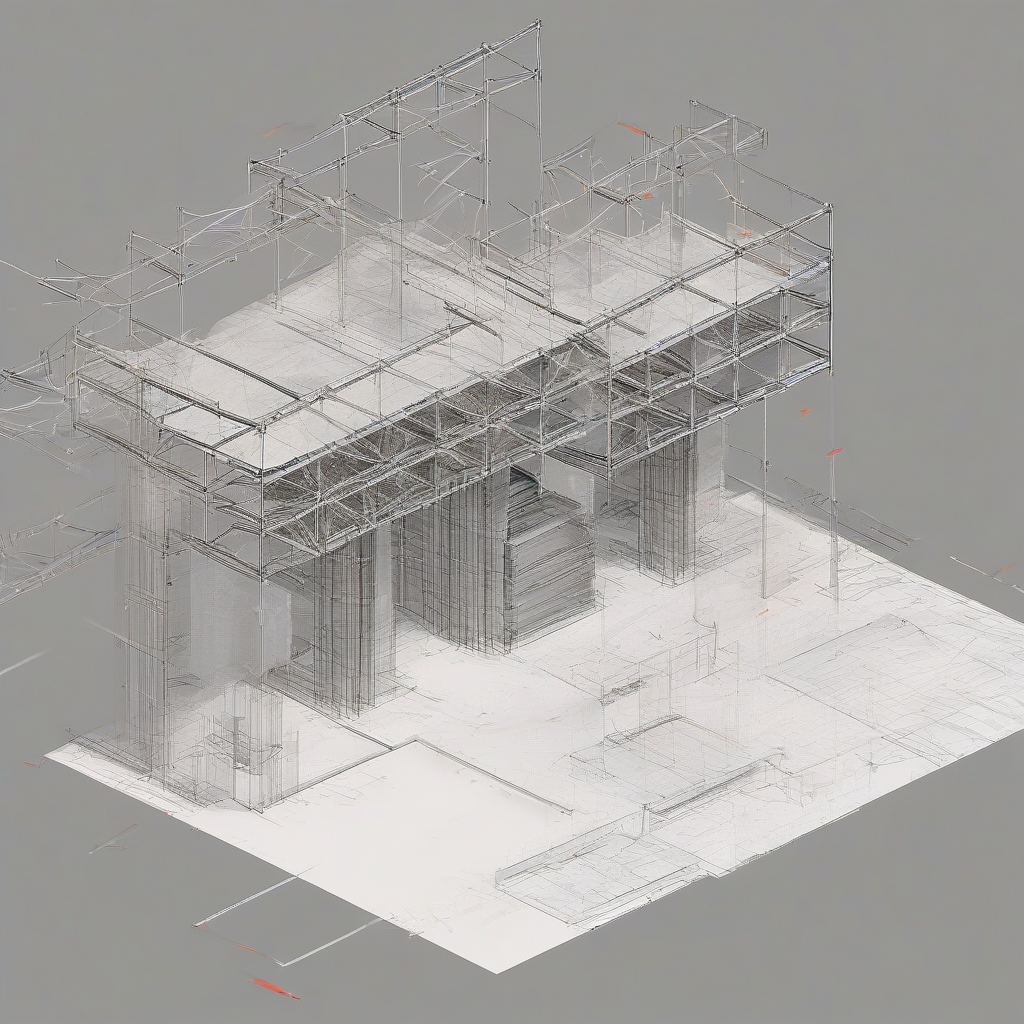Revolutionizing Construction: A Deep Dive into Construction ERP Systems
The construction industry, known for its complexity and fragmented processes, is undergoing a significant digital transformation. At the heart of this transformation lies the Enterprise Resource Planning (ERP) system. Construction ERP systems are integrated software solutions designed to streamline and optimize various aspects of a construction project, from planning and budgeting to execution and completion. This comprehensive exploration will delve into the functionalities, benefits, challenges, and future trends of construction ERP systems.
Core Functionalities of Construction ERP Systems
A robust construction ERP system encompasses a wide array of functionalities tailored to the specific needs of the industry. These functionalities can be broadly categorized as follows:
1. Project Management
- Project Planning and Scheduling: Creating detailed project schedules, assigning resources, tracking milestones, and managing dependencies.
- Resource Management: Optimizing the allocation of equipment, materials, and personnel to maximize efficiency and minimize costs.
- Risk Management: Identifying, assessing, and mitigating potential risks throughout the project lifecycle.
- Document Management: Centralized storage and management of all project-related documents, ensuring easy accessibility and version control.
- Collaboration and Communication: Facilitating seamless communication and collaboration among project stakeholders.
2. Financial Management
- Budgeting and Cost Control: Creating detailed budgets, tracking expenses, and monitoring cost performance against the baseline.
- Invoicing and Accounts Receivable: Generating accurate and timely invoices and managing the accounts receivable process.
- Accounts Payable: Managing vendor payments and ensuring timely processing of invoices.
- Financial Reporting: Generating comprehensive financial reports to provide insights into project profitability and overall financial health.
3. Procurement and Supply Chain Management
- Material Management: Tracking inventory levels, managing procurement processes, and optimizing material ordering.
- Supplier Management: Managing relationships with suppliers, negotiating contracts, and ensuring timely delivery of materials.
- Subcontractor Management: Managing subcontractors, tracking their performance, and ensuring compliance with project requirements.
4. Human Resources Management
- Employee Management: Tracking employee time and attendance, managing payroll, and ensuring compliance with labor laws.
- Training and Development: Providing employees with the necessary training and development opportunities.
Benefits of Implementing a Construction ERP System
The implementation of a construction ERP system offers numerous benefits, leading to improved efficiency, profitability, and overall project success. Some key advantages include:
- Improved Project Planning and Scheduling: Enhanced visibility into project timelines, resource allocation, and potential delays.
- Reduced Costs: Optimized resource utilization, minimized material waste, and improved cost control measures.
- Enhanced Collaboration and Communication: Streamlined communication among project stakeholders, fostering better teamwork and reducing conflicts.
- Increased Productivity: Automation of repetitive tasks, freeing up valuable time for more strategic activities.
- Improved Data Accuracy and Reporting: Real-time access to accurate data, enabling informed decision-making and better project monitoring.
- Better Risk Management: Proactive identification and mitigation of potential risks, preventing costly delays and disruptions.
- Increased Profitability: Improved efficiency, reduced costs, and better project control lead to enhanced profitability.
- Improved Compliance: Ensuring adherence to industry regulations and standards.
- Better Customer Satisfaction: On-time and on-budget project delivery results in greater customer satisfaction.
Challenges of Implementing a Construction ERP System
Despite the significant advantages, implementing a construction ERP system presents certain challenges that need careful consideration:
- High Initial Investment Costs: The purchase, implementation, and customization of an ERP system can be expensive.
- Integration Complexity: Integrating the ERP system with existing systems and applications can be complex and time-consuming.
- Data Migration: Migrating data from legacy systems to the new ERP system can be challenging and require significant effort.
- User Adoption: Ensuring that users adopt and effectively utilize the new system requires proper training and support.
- Change Management: Implementing an ERP system requires a significant change in organizational processes and workflows.
- Customization Requirements: Construction projects vary significantly, requiring customization of the ERP system to meet specific needs.
- Lack of Skilled Personnel: Finding and retaining skilled personnel to manage and maintain the ERP system can be a challenge.
- System Security: Ensuring the security and integrity of the data stored within the ERP system is crucial.
Selecting the Right Construction ERP System
Choosing the right construction ERP system is critical for success. Consider these factors:
- Project Size and Complexity: The chosen system should be scalable to handle the size and complexity of the projects.
- Company Size and Structure: The system should align with the company’s organizational structure and processes.
- Budget: The cost of the system, including implementation and ongoing maintenance, should be considered.
- Functionality Requirements: The system should meet the specific functional needs of the construction company.
- Vendor Support and Training: The vendor should provide adequate support and training to ensure successful implementation.
- Integration Capabilities: The system should be able to integrate with existing systems and applications.
- Scalability and Flexibility: The system should be scalable to accommodate future growth and changing needs.
- User-Friendliness: The system should be easy to use and navigate for all users.
Future Trends in Construction ERP Systems
The construction industry is rapidly evolving, and construction ERP systems are adapting to meet the demands of the future. Key trends include:
- Cloud-Based ERP Systems: Cloud-based solutions offer increased accessibility, scalability, and cost-effectiveness.
- Mobile Accessibility: Mobile access to ERP data enables real-time updates and improved decision-making on the go.
- Integration with BIM (Building Information Modeling): Integrating ERP systems with BIM software enables better collaboration and data sharing.
- Artificial Intelligence (AI) and Machine Learning (ML): AI and ML can enhance project forecasting, risk management, and resource optimization.
- Internet of Things (IoT) Integration: Integrating IoT devices provides real-time data on equipment performance and environmental conditions.
- Blockchain Technology: Blockchain can improve transparency and security in supply chain management.
- Augmented Reality (AR) and Virtual Reality (VR): AR and VR can enhance training, collaboration, and project visualization.
Conclusion (Omitted as per instructions)
